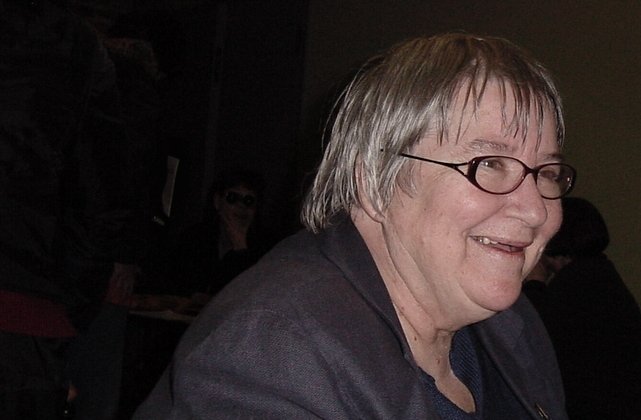The bright line says the lawyer doesn't become part of the criminal enterprise, whatever that enterprise may be.

"Lynne Irene Stewart" is an American former attorney who was known for representing controversial, poor, and often unpopular defendants. She was convicted on charges of conspiracy and providing material support to terrorists in 2005, and sentenced to 28 months in prison. Her felony conviction led to her being automatically Disbarment/disbarred. She was convicted of helping pass messages from her client, Sheikh Omar Abdel-Rahman, an Egyptian cleric convicted of planning terror attacks, to his followers in al-Gama'a al-Islamiyya, an organization designated as a Foreign Terrorist Organization by the United States Secretary of State.
She was re-sentenced on July 15, 2010, to 10 years in prison in light of her perjury at trial. She served her sentence at the Federal Medical Center, Carswell, a federal prison in Fort Worth, Texas.
Stewart was released from prison on December 31, 2013 on a compassionate release order because of her Terminal illness/terminal breast cancer diagnosis.
More Lynne Stewart on Wikipedia.I've been doing this work for 30 years, and I am well aware of the bright line and I have never stepped over it, and I certainly didn't do it in this case either.
It's one of the real sacred precincts of the law -- that your client should be absolutely free to tell you whatever he needs to tell to you, and you should be free to give whatever advice you need to give.
Now if he said to me, 'I want you [to] tell them the blood shall flow and you must attack them,' I would not have delivered that message.
It's so hard to fight against ghosts, when they say there's evidence and it's not there.
It's hard to be zealous when you are looking over your shoulder and thinking, 'Could the government indict me for this?'
I'm very shook up, and surprised, and disappointed that the jury didn't see what we saw.
It certainly is a great relief, ... It's also wonderful to know that the case maybe has opened a way for the use of this (1996) law to be circumscribed, curtailed a little bit.
The cherished freedoms that we really need to defend, among them being the right to counsel, the right to having a lawyer that you consult with in absolute privacy -- that's been breached in this case.
Copyright © 2024 Electric Goat Media. All Rights Reserved.